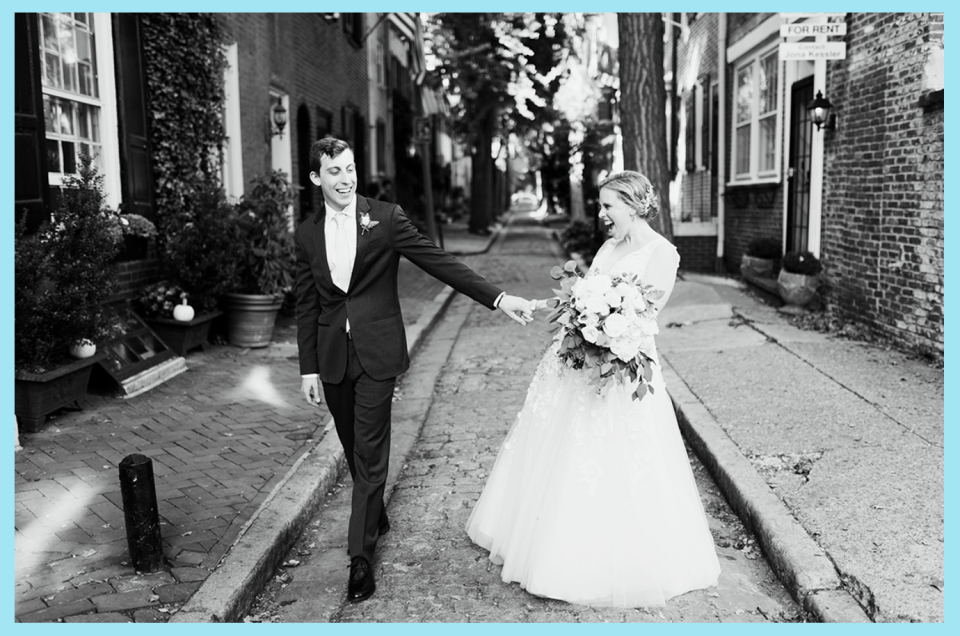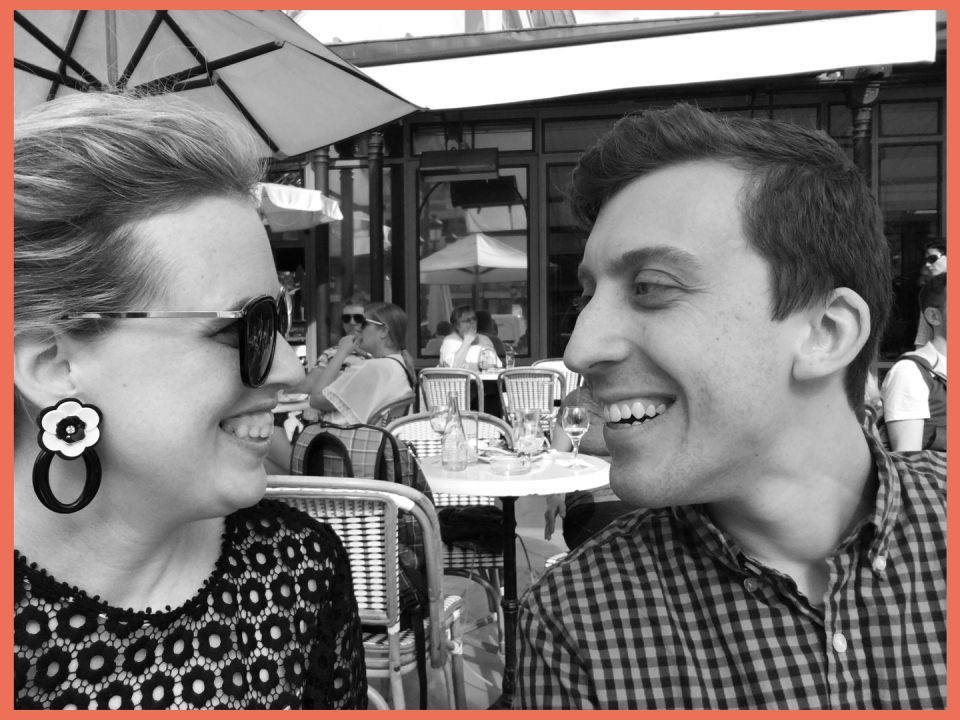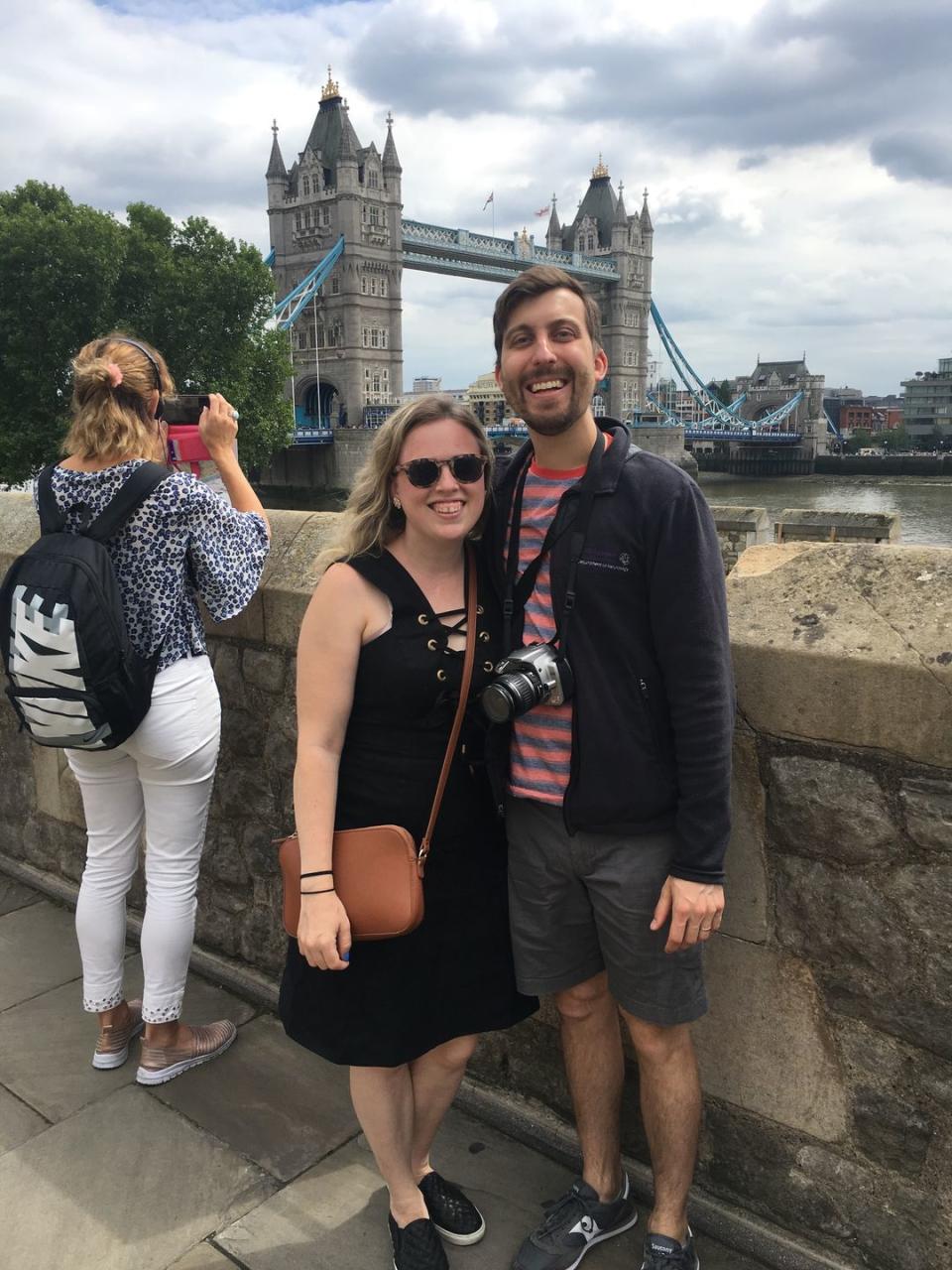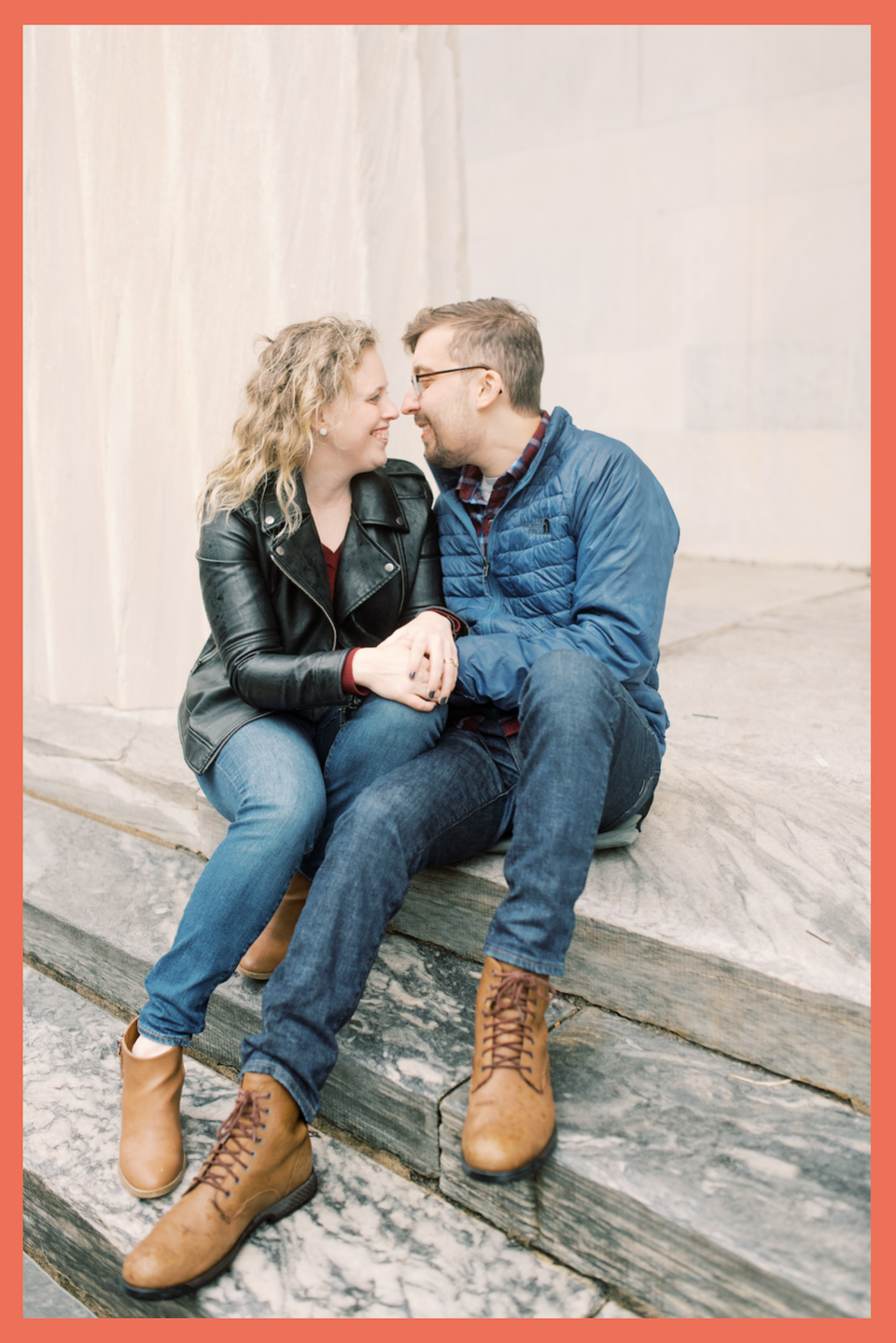Four Months After Our Wedding, My Husband Was Diagnosed With Terminal Brain Cancer

When my husband Jon Marc walked into our apartment after 8 p.m. on an average Thursday night in January 2018, nothing seemed amiss. He was tired, sure, but his job as a neurology resident pretty much guaranteed that.
But then Jon told me that he’d tried to speak to a patient in Spanish earlier that day, as he often did, but he couldn’t make the translations. When he tried to retrieve words from his brain, they weren’t there. It was like he’d never learned Spanish at all.
After six years of med school and his neurology residency, Jon knew that memory loss wasn’t good—nor were the headaches he’d had over the past few weeks. He offhandedly mentioned that these symptoms sounded like a brain tumor but dismissed it. I did too.
But as his naps stretched to 19 hours a day and his thoughts became foggier, we decided to go to the emergency room on a Sunday afternoon in February.
We were sure it was nothing but wanted a definite answer so we could stop worrying. We didn’t even go to the hospital where Jon worked because we didn’t want to bother his colleagues.
Jon had an MRI, which only took about 40 minutes, but two hours passed while we sat in a crowded room with little curtain partitions around each patient. We watched TV and anxiously awaited our dismissal. We wanted to go home and order Chinese takeout.
All of that calm disappeared when a neurosurgical resident came to ask Jon if he wanted to take a look at his own scan. Jon sarcastically muttered, “That’s a great sign,” and I told him not to worry. I asked if he wanted me to come with, but he said no. Sitting there waiting for him was the first time it really occurred to me that something might be wrong.
When Jon came back, he was serious and pale. He pulled the curtains closed. Shaking, he grabbed my hand tight and told me it was bad. There was something in his brain, likely a tumor. It was big, deep, and located in the region of his brain that controls speech and comprehension.
I have no idea how we slept that night or if we did at all, but I will forever mark our lives by before February 25, 2018, and after.
Jon and I met on our first day of college at the University of Delaware. Our dorm rooms were across the hall from each other, and we immediately became friends. I thought he was nerdy, adorable, and clearly obsessed—he was so flirty. But he maintains he wasn’t into me then.
To the surprise of exactly none of our friends, we started dating during our junior year on November 1, 2009.
After college, Jon went to medical school in Philadelphia, and I headed to New York for a job in magazines. We spent four years making frequent weekend trips and Skype dates before he was placed in New York City for his medical school residency. I got him back.

After our whirlwind eight-year romance, we got married on October 21, 2017, in Philadelphia. I was never one of those girls who pictured her dream wedding—I wasn’t even sure I wanted to be married at all until I met Jon—but that day was so much more than I ever could have imagined anyway. It was autumn and the leaves already turned vibrant shades of orange, but it was sunny and 75 degrees. Jon walked down the aisle to “Friday I’m in Love,” by The Cure, and I walked to meet him at the altar to “Somewhere Only We Know,” by Keane.
When we had a moment alone later, we exchanged our cards. Both read “It was always you” on the front, totally unplanned. As cliché as it sounds, it was the best day of my life. I often revisit it when I think about what I once thought our future would look like. We spent the next few months after the wedding living exactly the way we had before, until that emergency room visit in February.
The morning after that initial emergency room visit, I felt hopeful. I was sure there was a cure for whatever was wrong with Jon. We’d find a way to beat it.
But when we met with a neuro-oncologist the day after the MRI, the vibe was solemn and scary. After we spoke about the next steps to take, Jon asked to have a few minutes with the doctor by himself, so I left the room. A few minutes later, he emerged with tears in his eyes. He looked at me blankly and said, “I had forever and now I don’t.”
Looking back, I realize Jon knew exactly what he was facing. His time as a neurologist had taught him that. I wish I knew, too, so that he could have felt less alone, but apart from that comment, he never let on how dire it could be. It was his way of protecting me.
Later that week, doctors told us they could operate but the tumor was the deadliest kind of brain cancer, called glioblastoma. The median survival time is generally less than a few years, and the tumors show up in approximately 12,000 people each year and they’re incredibly treatment resistant. Of course, I didn’t know this back then because—in a rare feat of willpower—I refused to google it.
Jon needed to have the tumor removed immediately, followed by radiation and chemotherapy. There was a 50 percent chance Jon would come out with major vision loss, around a 5 percent chance he would never intelligibly speak again, and a smaller chance he wouldn’t make it through the surgery at all.
We signed forms acknowledging the risks, but they didn’t feel real. I wasn’t even used to signing my new last name yet, much less as his health care proxy in case he died.

At 6 a.m. the next morning, they wheeled him out of his room in the intensive care unit toward the operating room. I took a mental picture in case that was the last time I saw him—or the last time he was really himself.
For eight excruciating hours, I sat in the chilly lobby waiting with our friends and family. Our group was about 10 people strong and took up an entire seating area. I nervously snacked and prayed for vision loss, our best worst-case option. Finally, his surgeon emerged to say he’d been able to remove 98 percent of the tumor. It was so much better than we hoped to hope for.
Jon had lost some of his peripheral vision, but he was already speaking—something we thought we’d have to wait hours for. We all sobbed with relief, scaring a dozen people sitting around us in the waiting area.
That second day out of surgery, the doctors asked him what the date was, how to spell his name, and dozens of other questions. He got nearly every one wrong. But when they asked, “What is your wife’s name?” he shouted, “ERICA!” as if he were afraid to mess it up. His parents and I laughed.
Two weeks after that first surgery, Jon’s brain swelled and sent him back to the operating room. While doctors prepped Jon, the hospital staff suggested we talk about his preferences on resuscitation and feeding tubes if things took a turn. As his proxy (and wife of exactly four months), the decision would be mine. I’ve never felt more ill-equipped.
The surgery was successful, but his speech was gone again, so we were back to square one. I can’t imagine how frustrating that was for him, but as is his personality, he never complained or got angry.
Seven months later, we spent the days leading up to our one year wedding anniversary in a lovely neuro-intensive care suite, post-surgery. No one had worked harder to reach that date than us.
We were disappointed but not shocked when the tumor emerged two more times. We’ve worked through Plans B (C, D, E, and F), but Jon is still fighting. The same determination that made him a great student and doctor makes him a stubborn but determined patient.

We’re often asked about what the financial burden is like, and in many ways we’ve lucked out. Our friends and family have been incredibly generous, cooking us meals, giving us Uber and Seamless gift cards, and donating their time to offer advice or just hang out.
Jon’s job kept him on for over a year and his health coverage helped with nearly every surgery and doctor visit. When, heartbreakingly, he was fully dismissed from his residency program in June, I added him onto my much-less-inclusive plan. That means we pay up to $13,000 per month for some treatments. Still, it bought us time, the only thing that really mattered.
I rarely think about what life would look like if our world didn’t stop spinning in February 2018.. It’s just too hard.
Our two years of marriage feel more like 10 years. We’ve had conversations about kids (we won’t have them) and whether we should take every possible study, medication, and measure to keep Jon going (we will). And we made plans to start living our best possible lives immediately. We’ve used every stable brain scan as an excuse to to travel, see friends, go out to fancy dinners, and basically do everything we never found the time to do when we were both healthy.

We’re fighting hard so that he can really live, and we’ve both realized that means going against our instincts. Jon, a stickler about spending money and totally thrown by spontaneity, did a 180, planning last-minute trips with joy. And I, a person who’s never once lived in the moment, have slowed down enough to take in our time together—even if it’s just a Sunday running errands.
Since his diagnosis, we’ve seen the Cliffs of Moher, strolled through Notting Hill, driven up the coast of the Pacific Northwest, and eaten all the Cuban food we could find in Miami.
It’s bittersweet, but we really only started living the best version of our lives after we weren’t sure how long we’d have.
I’ve revisited the moment after his first surgery, when doctors assessed his memory. Even if he didn’t know where he lived or what month it was, he knew my name. He knew I was me. And despite all of his losses, I know he’s still Jon.
The road we’re on is incredibly difficult. It’s lonely, tiring, and clearly not a path we’d choose. I don’t know what the future looks like for us, but when I look back I’m grateful that 22-year-old me was smart enough to know I’d found the most incredible person. On our second anniversary last month, one I wasn't sure we’d make it to, I got Jon and I matching bracelets that say “love never fails” in Morse code beads. So far, it hasn’t.
You Might Also Like

